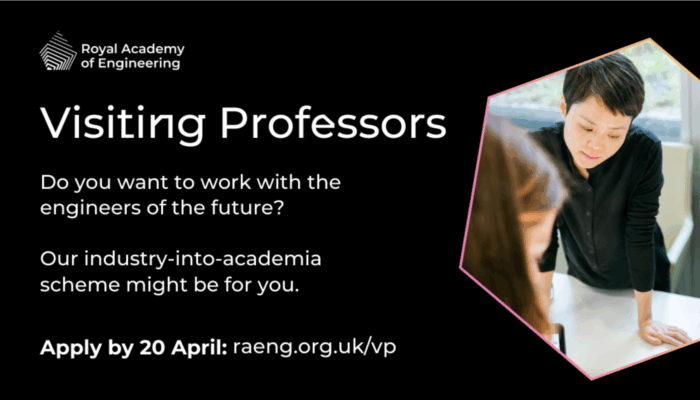Every term, the EPC Chief Executive, Johnny Rich, provides an update to EPC reps in each university and to the Heads & Deans Community about what the EPC has been doing and intends to do on behalf of members. Here’s his latest update for Spring 2025.
Consultations
Curriculum & Assessment Review: I mentioned this at our last session, but since then we have submitted our response to the Government-backed, independent review of education to level 3 (ie. pre-university). You can read that here, but if you want to see a shorter summary of some of our key points, Prof Bev Gibbs of Dyson Institute, who is also chair of our Education, Employability & Skills Committee, and I wrote a blog for HEPI. Becky Francis has also recently published her interim findings, which don’t say anything much, but the general reaction seems to be to applaud her for her measured silence.
CSR Submission: We called for basically either £900 million extra for engineering education or a restructuring of the HE funding mechanism. You can read it here.
OfS Strategy: We responded to the consultation on the Office for Students’ new draft strategy.
Education Select Committee Call for Evidence on FE and Skills: We submitted evidence and also had a hand in shaping RAEng’s submission to ensure it’s positive about universities. Our submission is available on the website. We’re using the opportunity to talk about pipeline shortages, demand for engineering outstripping supply, stopping the defunding of BTECs, the future of T levels and various other things.
Science, Innovation & Technology call for themes: We’ve submitted a brief recommendation that the Select Committee should look at the impact of engineering skills shortages on the economy.
All current and past consultations can be found on the site under the Influence menu.
REF
We’ve been talking quite a bit to Rebecca Fairbairn, who is Director of REF 2029 – mostly through Prof Ion Sucala who chairs out RIKT committee.
She’s been keen to discuss with us concerns about how security-sensitive research can feed into REF.
She also wants us to encourage you to apply to join the REF panels.
It’s an open application process this time, rather than nominations from sector bodies. She says: “For Main Panel membership and discipline-specific Sub-Panel membership we need a range of expertise. Although this is an assessment of UK research (and so we need academic expertise), it requires expertise from outside of the UK and outside of academia. We need international expertise (at strategic and discipline levels) to ensure the UK’s assessment properly accounts for the value of international partnership and differences in international approaches. And we need non-academic expertise to ensure the value of research happening inside HEIs is understood in relation to that outside of academia. Industrial experience will be particularly valuable. We will also need to have some panel members with security clearance.”
So if that might be you, one of your colleagues or someone you know, do please apply.
Level 7 Apprenticeships
At a previous reps meeting, the subject of level 7 apprenticeships was raised. As you may know, the government has been making increasingly determined statements about defunding postgraduate level apprenticeships. This is because they’re keen to stop businesses using their apprenticeship levies to fund expensive MBA for existing staff instead of level 2 and 3 apprenticeships for school-leavers.
The problem is that they might throw the MEng babies out with the MBA bathwater. So I have written a letter to the Secretary of State to say, you might not want to do that, given the engineering skills shortages, urging her either not to defund level 7 apprenticeships in engineering or find another way of supporting those higher levels of skills development.
I’ve also written a blog for the Higher Education Policy Institute which is read quite widely in Whitehall and Westminster.
Toolkits
As you know, we have our excellent ethics, sustainability and enterprise collaboration toolkits as well as some other older ones. We have also recently started work creating a Complex Systems Toolkit in partnership with our friends at Quanser. If you’d like to be involved in that or to know more, drop my colleague Wendy a line.
We’re also working with Anne Nortcliffe at Wrexham University to develop further and disseminate a toolkit that she’s been working on about inclusive employability. That should be available on the site in the next couple of months.
And yesterday, we launched the Engineering Deaf Awareness Project toolkit. This isn’t the EPC’s own work but a group of mostly engineering academics who have developed best practice for inclusion of deaf and hearing impaired students and colleagues. Their work shows how this isn’t just good for inclusion, but the same measures help everyone’s learning. If you missed yesterday’s webinar, a recording will be going up soon and in the meantime, you can find the new toolkit on the website.
Neurodiversity
As you may know, we’ve been doing a good deal of work on neurodiversity in engineering led by my colleague Stella with support from various academics, particularly Bev Gibbs.
They are working on creating a neuro-inclusion maturity model and have made lots of progress, which they’re keen to share, explain and discuss. To this end, there was a free in-person one-day event last Friday for EPC members at NMITE in Hereford.
Events
We recently ran our series of three webinars on AI and how it can enhance engineering teaching and assessment; research; and societal good. We had some fantastic speakers including, for example, Conrad Wolfram of Wolfram research. If you missed the webinar, you can catch up with the recordings on the EPC website.
Upcoming events
You can find full listings of upcoming events here.
EAN Congress: The Annual Congress is the never-to-be-missed event in the engineering academic calendar. This year it is hosted in Manchester by Manchester Metropolitan University & the University of Manchester and the theme is ‘Realising the vision’.
Among the confirmed speakers who I’m allowed to announce include Chi Onwurah MP, engineer and Chair of the Science, Innovation & Technology Committee; Prof Sir Bashir Al-Hashimi, Chair of Engineers 2030 and Vice President of King’s College London; Lucy Rogers MBE, engineering and science communicator extraordinaire.
AGM and Webinar: The EPC AGM will take place online on July 7th at 11am and we have just confirmed that alongside the formal business, we will have an audience with Paul Bailey, Chief Executive of the Engineering Council. More details to follow.
Refreshing contacts
We are currently updating our contacts database. The idea is that every individual who has the right to access any of our materials should be on the system. It’s designed to make the job of Reps as easy as possible, basically keeping your colleagues informed, but the only thing we can’t do is know who those colleagues are at every given moment and what their contact details are.
You can upload a spreadsheet to update everybody all at once or you can add people one by one or you can email Rhian with a list. Whatever is easiest for you.
Some unis have expressed concern about any GDPR implications of providing us with email addresses. We have taken advice on this multiple times. There is definitely no issue under the GDPR legislation because in subscribing to be members of the EPC, the emails to colleague is explicitly part of the package of services to which you are subscribing. Also we’re not using those details for commercial purposes.
That said, if you’re still worried, we can help you forward an invitation to your colleagues to encourage them to update their own details. That’s less complete as an approach though and does potentially mean more work for you.
If you were interested in this policy update, you may also be interested in Johnny’s Spring policy update.




